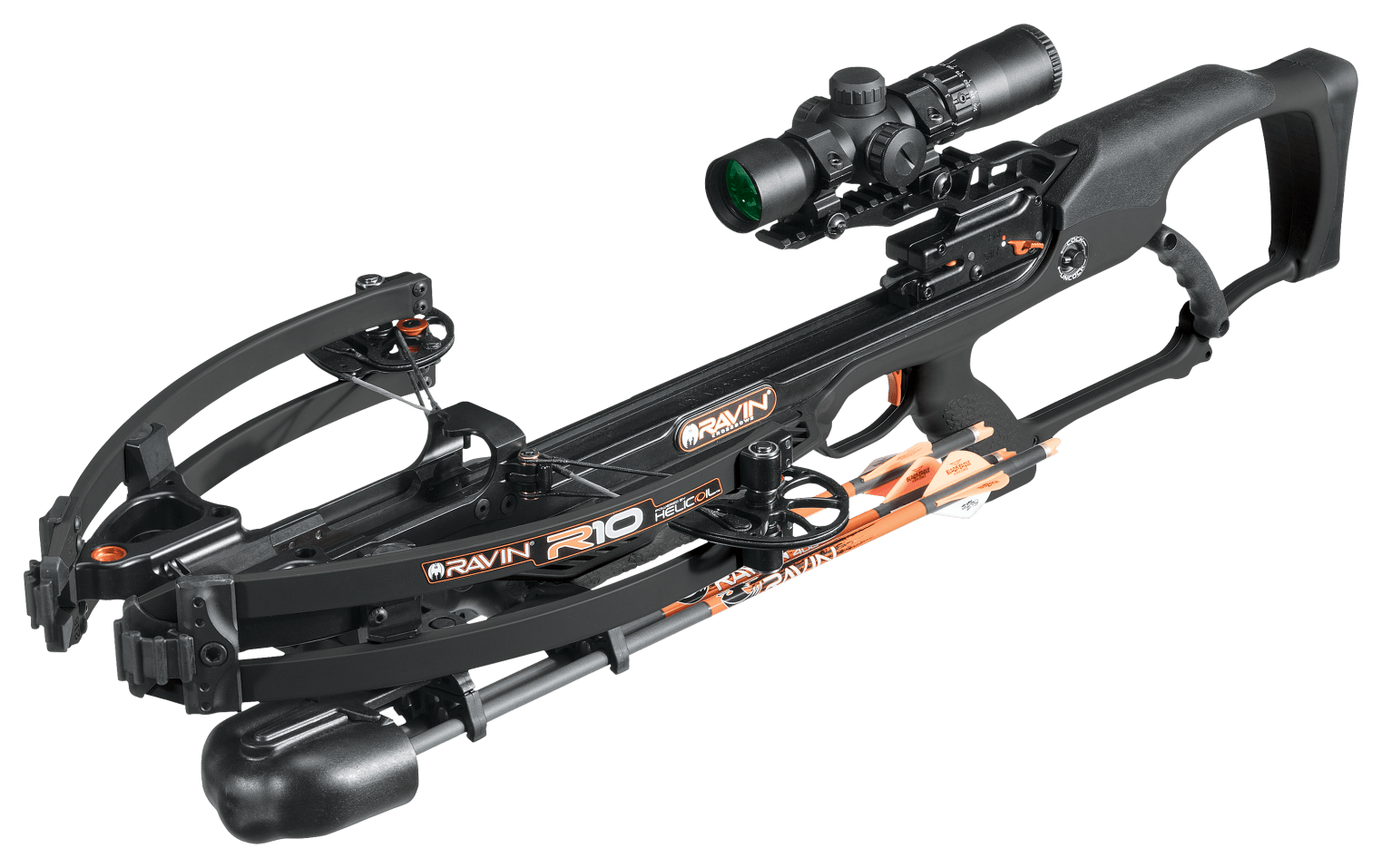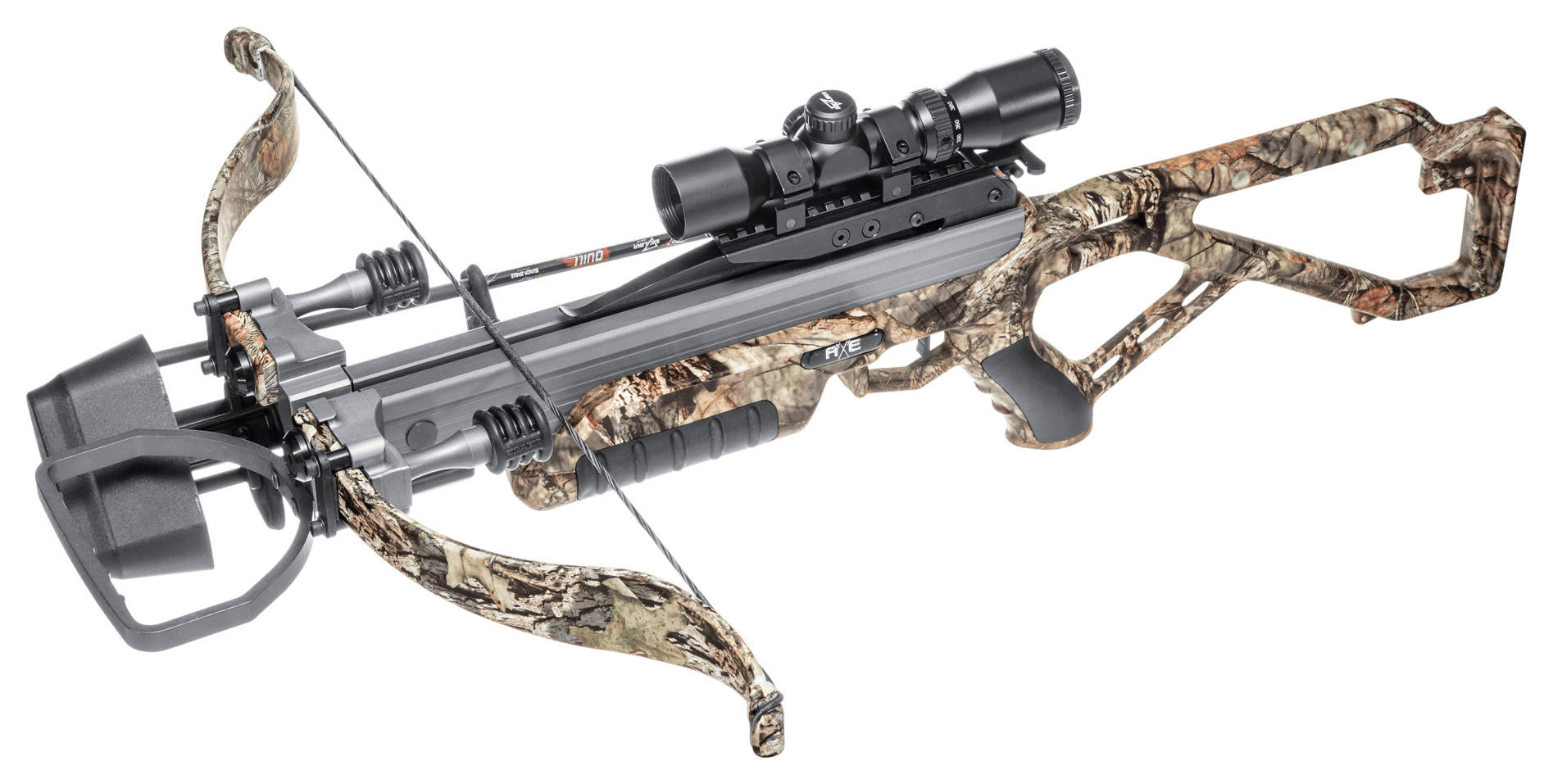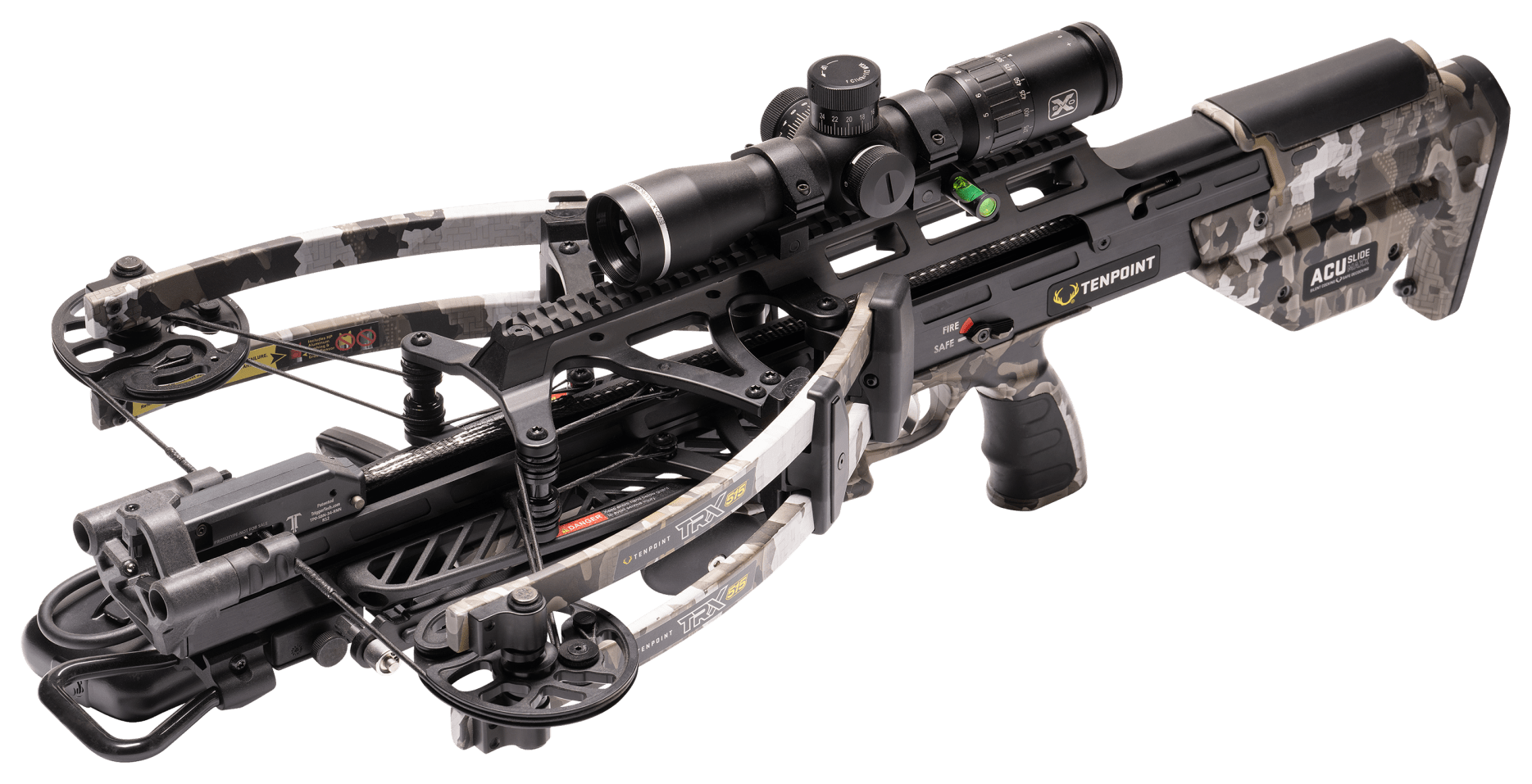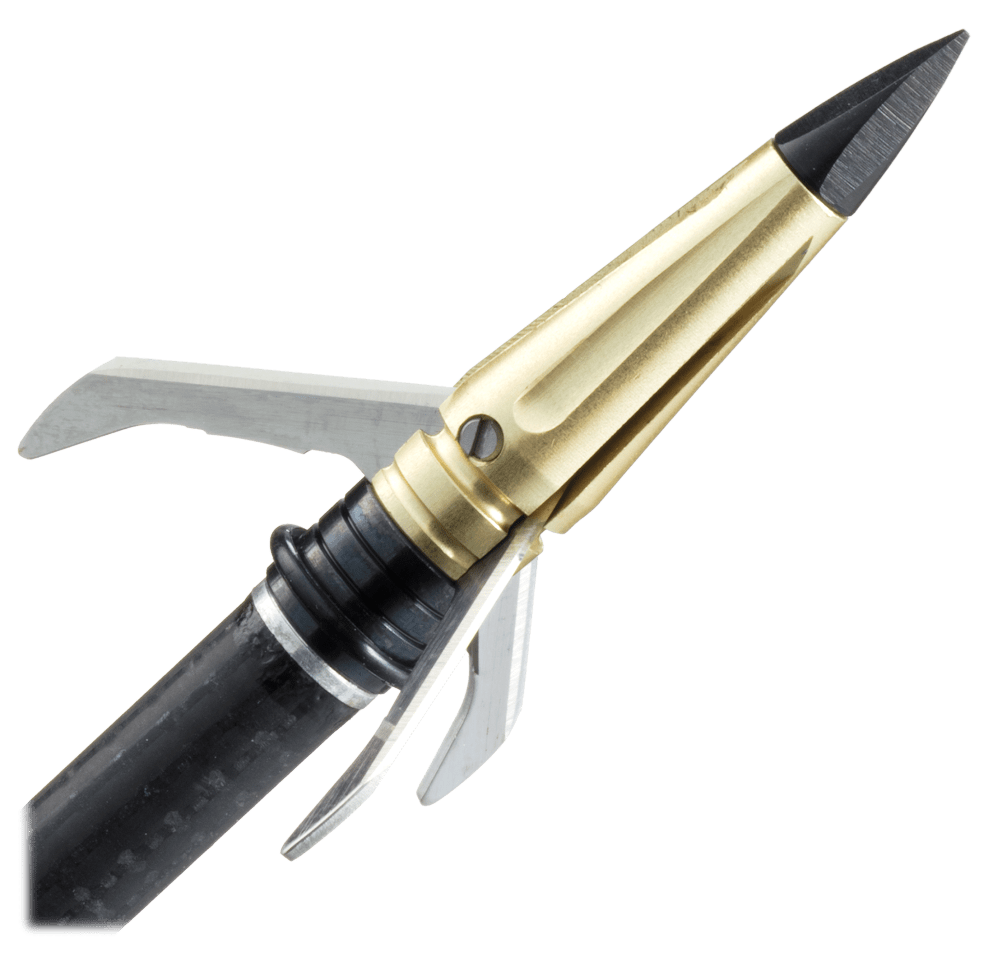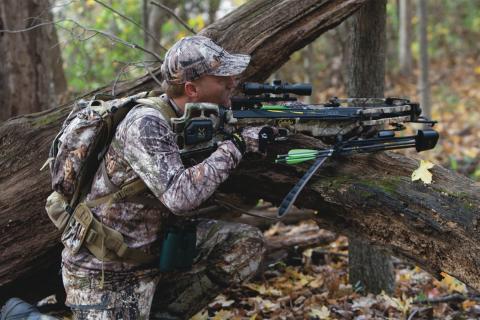
It's a safe bet that the crossbow has advanced more in the last 20 years than in the past 2,000, and innovation shows no sign of slowing down. New materials throughout, limb designs, strings, sights, bolts, stock construction and cocking mechanisms have made modern crossbows easier to use, more accurate and increasingly effective on game. The modern crossbow allows hunters who may not be able to draw a bow to deliver an extremely precise shot.
Crossbows are very versatile and great for anyone. Those who, through age, injury, or lack of arm strength, cannot draw a regular bow can still experience the thrill of archery hunting by using a crossbow. The combination of optical sights and the fact that the user does not have to strain to draw a bow enables many archers to extend their deer hunting by 10 or even 20 years by using a crossbow.
The crossbow’s high precision appeals to those who like to leave nothing to chance. Bench-rest rifle shooters often fall in love with the crossbow’s ability to put shot after shot in nearly the same hole. (When target practicing, or sighting in, shoot only one boltat the time. or at different targets to keep from ruining your shafts and points.)
Ravin R10 Crossbow Package - Black
The Ravin Crossbows R10 Crossbow Package offers rifle-like feel - measures just 6.5" from axle to axle when cocked. The Ravin's HeliCoil technology coils the cables away from the top and bottom of the R10's cams in helical grooves, keeping the cams perfectly balanced. This unique balance allows the cams to rotate 340° while remaining completely level through the draw and release for precise accuracy you don't expect from a crossbow. Comes with illuminated scope, 3-arrow quiver, 3 Ravin arrows with nocks and 100 grain practice points, removable cocking handle, and accessories bracket. This package is fully assembled and pre-tuned.
Shop NowTwo of the Most Common Types of Crossbows
Just as there are recurve and compound bows, there are recurve and compound crossbows. The recurve crossbow is simpler because it lacks the complicated stringing required for the round-wheel or asymmetric-wheel compound crossbows. Simplicity is its most attractive feature. The moving cams and cables are eliminated, saving valuable weight. Often this lack of moving parts translates to a lower price point and proves to be relatively inexpensive to operate compared to its compound cousins.
Excalibur Micro Mag 340 Crossbow Package
A workhorse crossbow in a compact package, the Excalibur Micro Mag 340 Crossbow gives hunters easy-to-maneuver performance capable of taking down any game. Anchored on a lightweight aluminum frame, the proven Excalibur recurve limbs launch arrows downrange up to 340 fps. Just 22" wide when cocked, and only 31.75" long, this compact crossbow moves easily in a ground blind or tight treestand. Smooth-breaking trigger features Excalibur's Guardian Anti-Dry Fire System for safety. Combining top-in-class performance, accuracy, and value, this dependable crossbow comes outfitted with all the accessories you need to get hunting fast.
Shop NowThe compound crossbow is archery engineering at its finest. Generally, a compound crossbow has shorter limbs, making it somewhat easier than recurves to handle in tight places. Most compounds will shoot the same weight arrows faster than recurves. The complex lever-and-pulley-style systems allow a larger potential energy in the bolt while allowing cocking mechanisms to require less effort. This happens with two cam types.
Bow Cams - Outside & Inside
Outside-rotating cams have been the standard of crossbows since the introduction of the compound. Strings roll off outside-rotating cams at the farthest point apart by rotating inside-out. The angles of the string off the cams are mild and rely more on the limbs to generate power than inside-rotating cams. Since these cam types translate to wider axle-to-axle widths, they're more suited for open maneuvering outside of blinds and treestands.
The argument for inside-rotating cams is the power generated in a more compact construction. Since the strings rotate off the cams from the inside, the string angles are more extreme. This also means the axle-to-axle distance is far more compact, so it's perfect for working around a treestand or in a blind.
Crossbow Limb Types
Much like how the two cam systems above affect the width of a crossbow, limb types affect the length. Standard limbs are what pops into everyone's mind when they hear the word "crossbow". Looking like a bow turned horizontally, the limb pockets and riser sit at the end of the barrel (where the bolt rests when cocked). How the limbs work allows the cams to have inside- or outside-rotation. The balance is steady in the hand for free-handed shooting.
TenPoint TRX 515 Crossbow Package with ACUSlide MAXX
The fastest, most accurate, and most technologically advanced crossbow ever offered by TenPoint®, the TRX 515™ Crossbow Package with ACUSlide MAXX™ sets a new standard for crossbow performance. An easy-handling platform that's just 29" long and 6" from axle to axle when cocked, the TRX 515 blast bolts towards game at 515 fps with a whopping 241 ft. lbs. of kinetic energy. Stocked with new technology and design, this innovative reverse-draw design combines a new TriggerTech Trigger, Twin-Riser Technology™, ZERO-Trac Barrel™, and GUIDE-Lock™ Arrow Rest System to match its amazing power with unmatched consistency and accuracy.
Shop NowIn 2003 James "Jim" Kempf of Scorpyd Crossbows came up with the reverse-limb or reverse draw crossbow. This looks like the bow part was stuck on backwards, where the riser and limb pockets sit towards the butt of the stock, rather than at the end. The string also appears to launch the bolt "backwards". This has translated to crossbows that are unparalleled for compact power. This means it’s easy to use in a confined space like a blind or treestand.
Because of this design, they also always sport inside-draw cams (described above). A few decades back almost all crossbows had steel limbs. Now, almost all bows have fiberglass, aluminum or composite limbs with designs ranging from one long, thin bow to thick barrel-stave shapes and split limbs that lessen weight and equalize stress.
Crossbow Stocks
Stocks are available in composite plastics reinforced with metallic elements, full aluminum or with carbon-fiber components.
Molded stocks allow a great range in designs and may incorporate string or wind-up cockers in their stocks. The stock not only supports the firing elements, arrow rail and bow, but is also the crossbow’s most weighty component. Some crossbows have skeletal stocks to reduce weight. Generally, the heavier the crossbow, the easier it is to shoot accurately as weight adds stability during the microseconds that the arrow remains in the crossbow’s guide rail.
Power and Cocking Mechanisms
For deer-size game, a minimum draw weight of 125 lbs. on a modern crossbow is recommended. Crossbows shooting bolts above 245 fps can shoot a bolt completely through a deer with a broadside shot. Most reasonably fit shooters can hand-cock a 150-lb. draw weight using a foot stirrup. Rope cocking aids, available from most makers, reduce the pull weight by 50% or more. Crank cocking aids require only 10-15 pounds of pressure to cock a heavy-pull-weight crossbow and are becoming more standard integrated as part of the stock.
Crossbow Bolts, Points and Broadheads
Selecting properly splined bolts of the correct length combined with an effective game-killing point is as important with a crossbow as with a bow. The manufacturer will always list a series of recommended bolts and point weights. Aluminum, carbon, and composite arrows are now available with a variety of fixed and mechanical points. As a rule, faster arrows shoot better with mechanical broadheads like Ravin Crossbows broadheads compared to fixed-blade broadheads.
Aluminum arrows will often perform well with 125-gr. fixed points, while carbon shafts prefer 100-gr. points. Always sight in your bow with your hunting arrows and points. Field points and broadheads often have very different flight characteristics, even if both have the same weight. Use a small rubber gasket to line up the blades of mechanical points with the fletching for best results.
BlackOut Lazer Strike II Expandable Crossbow Broadheads
Built to handle the force from today's modern crossbows and deliver big take down power, BlackOut® Lazer Strike II Expandable Crossbow Broadheads deliver deadly performance. This true-flying broadhead features a rugged aircraft-grade aluminum ferrule comes tipped with a cut-on-contact Trophy Tip® made of hardened carbon steel for deep penetration through bone, hide, and tissue. The 3 offset .030" 440 stainless steel blades are super sharp and open after contact to deliver a 1-1/4" cutting diameter. Handling crossbows rated to 400 fps, the Lazer Strike II's retention rings hold the blades in tight against the ferrule in flight so it flies like a field point on every shot. 3-pack.
Shop NowCrossbow Sights
Crossbows are commonly sold with optical or red-dot sights. Since the drop of a bolt is so unique, there are scopes tailored to crossbows specifically with drop-compensated reticles. If your sight doesn't have a drop-compensated reticle, like a red-dot scope, knowing the exact range to the target is extremely important.
A laser rangefinder is a vital element in making a clean kill with a crossbow. When purchasing any crossbow, it is wise to buy needed accessories at the same time, as accessories purchased five years from now may not fit this year’s crossbows.
- 42011 views


